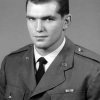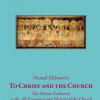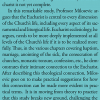Инспирисана филмским ремек-делом браће Коен из 1996. године, телевизијска серија „Фарго”, иако се емитује тек неколико месеци, већ је побрала симпатије публике и критике. Серија, у којој главне улоге тумаче Били Боб Торнтон и Мартин Фриман, номинована је у чак 18 категорија за престижне Еми награде, које ће бити додељене 25. августа.
Једну од номинација за „телевизијског Оскара” има и музика из серије коју потписује Џеф Русо, амерички композитор и члан бенда „Тоник”, а део његовог тима је и млада Београђанка Матеа Прљевић, која је на чувеном Берклију завршила студије на одсеку за компоновање музике за филм и ТВ и дириговање.
.Осим са Русоом, Матеа је, за кратко време колико живи и ради у Холивуду, сарађивала и са једним од најславнијих филмских композитора Хансом Цимером, али и популарним репером Фифти Сентом.
Иако се протеклих година, захваљујући „Мултикултиватору”, у Србији организују аудиције за пријем на Беркли, није лако уписати се на престижни бостонски музички колеџ, каже за „Политику” из Холивуда Матеа. Студије које је окончала прошле године, пружиле су јој много.
– На том одсеку предаје велики број професора са изузетно успешним каријерама у филмској индустрији, који преносе студентима искуство и знање. А диплома овог универзитета је добра референца за даљи професионални ангажман. Сваки послодавац у филмској индустрији зна шта може да очекује од композитора са Берклија. До сада сам већину послова добила уз подршку Берклијеве заједнице у Лос Анђелесу – каже Матеа.
По завршетку факултета се, по савету искусних колега, запутила у Лос Анђелес за који каже да је град филма.
– На сваком кораку можете упознати некога ко на неки начин ради за филмску индустрију, и постоји много могућности за добијање посла. Наравно, може се радити на филму и серијама и у Њујорку, али у Лос Анђелесу се практично живи у филмској индустрији – истиче Матеа, која је већ потписала музику за неколико кратких филмова и сарађивала са Цимером и Русоом.
– Они су моји узори, а још већа мотивација када радим за њих јесте што се доказујем њима лично. А сви они, иако су познати и успешни, веома су приземни, професионални и радни. Пресрећна сам што је Русо номинован за Еми, и то за серију на којој сам радила као део тима. Иначе, за серију композитор мора да заврши музику у кратком року, због чега је продукција звука скромнија у односу на филм и често се користе само компјутерски звуци и инструменти. Међутим, на серији „Фарго” смо имали више времена по епизоди и могли смо да снимимо музику са живим оркестром. Тиме је знатно увећан квалитет музике због чега се издвојила – каже Матеа, која наставља рад на другој сезони „Фарга”, а увелико, као композитор, ради на неколико филмова.
Ј. Копривица
Политика, 25. 7. 2014.







